
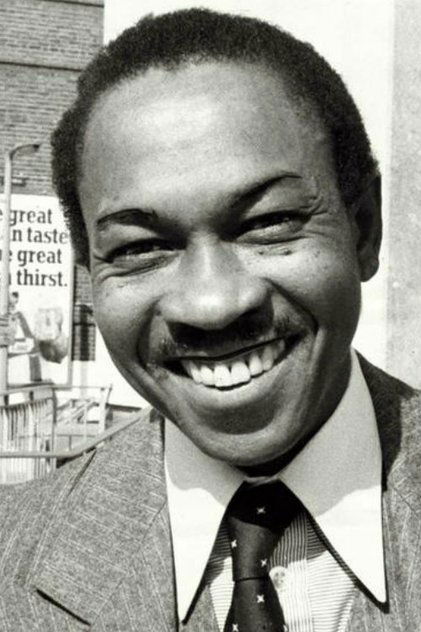
Norman Beaton
Born: October 31, 1934
Died: December 13, 1994
in Georgetown, Guyana
Died: December 13, 1994
in Georgetown, Guyana
Norman Beaton was a popular and much loved Guyanese born British actor. He arrived in the UK in 1960 and worked as a calypso singer and musician and a teacher - being the first black teacher employed by the education authority in Liverpool. His heart set on a career in showbusiness, he moved to Bristol and became a presenter on the regional news magazine Points West, before a two week prison sentence curtailed his presenting career. He subsequently found work in London's West End, appearing in The Tempest as Ariel, a role he subsequently cited as the most important in his career. He helped set up the Black Theatre in Brixton in the mid 70s and broke into television with the first black British sitcom, The Fosters in 1976, playing Lenny Henry's father. A star turn in the movie Black Joy followed a year later, as did the principal role in the fledgling black soap Empire Road for the BBC. But it is perhaps his performance as Desmond Ambrose, the crotchety Peckham barber in Channel 4's hit sitcom Desmond's that Beaton will forever be remembered for. The series ran from 1988 until his ill health curtailed the show in 1994. He retired to Georgetown, the place of his birth, but collapsed and died of a heart attack at the airport on arrival, on 13th December 1994. He was 60 years old.
Movies for Norman Beaton...
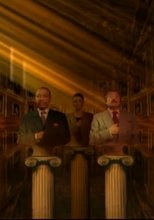
Title: Little Napoleons
Character: N.K. Edwards
Released: June 7, 1994
Type: TV
Labour councillor Judith Silver invites N.K. Edwards and Vijay Shah to stand for election to the local council. Who will win the seat? And will Tory councillor Edward Feathers have the last laugh?


Title: Black and White in Colour
Character: Himself
Released: June 27, 1992
Type: Movie
A two part documentary that details the contribution of black and Asian people to television history from the birth of television in 1936 to 1992. Interviewees include: Pearl Connor, Thomas Baptiste, Lenny Henry, Norman Beaton, Horace Ové, Carmen Munroe, and Stuart Hall.


Title: When Love Dies
Character: Pastor
Released: January 20, 1990
Type: Movie
A young man looks back over his unhappy marriage and struggles to come to terms with his wife's suicide.


Title: The Mighty Quinn
Character: Governor Chalk
Released: February 17, 1989
Type: Movie
Police chief Xavier Quinn investigates the gruesome murder of Donald Pater, one of the wealthiest residents on a Caribbean island. He was found decapitated in his Jacuzzi. Although the local political establishment, especially crooked Governor Chalk, insists that small-time thief Maubee is responsible, Xavier has his doubts. This view is complicated by the police chief's personal history with Maubee: The men have been friends since childhood.

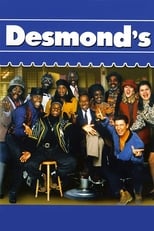
Title: Desmond's
Character: Desmond Ambrose
Released: January 5, 1989
Type: TV
Desmond's was a British television situation comedy broadcast by Channel 4 from 1989 to 1994. With 71 episodes, Desmond's became Channel 4's longest-running sitcom. The first series was shot in 1988, with the first episode broadcast in January 1989. The show was made in and set in Peckham, London, England and featured a predominantly Black British Guyanese cast.
Conceived and co-written by Trix Worrell, and produced by Charlie Hanson and Humphrey Barclay, this series starred Norman Beaton as barber Desmond Ambrose. Desmond's shop was a gathering place for an assortment of local characters.

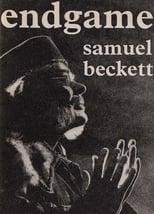
Title: Endgame
Character: Hamm
Released: January 1, 1989
Type: Movie
A performance of Samuel Beckett's 'Endgame', a play in which nothing happens, once - unlike Beckett's first play 'Waiting for Godot' in which nothing happens twice. It is not a play about chess, in any explicit sense, but it does feature a lovable if curmudgeonly old man in a dustbin. Generally accepted to be Beckett's bleakest play - indeed after it's 1957 English debut at the Royal Court, the TLS's Olivier Todd quipped that it made Waiting for Godot look like "a cheerful operetta". However, Beckett himself described it as "the favourite of my plays." Although the programme was not broadcast until 1991 it was recorded in 1989 prior to Beckett's death and had his blessing. This production is particularly notable as it is first full-length television performance of the play.


Title: Airbase
Character: Voice
Released: March 1, 1988
Type: Movie
Hidden beneath an airbase the elite F-111 pilots live in a secret fantasy world as they wait, primed for the ultimate war game of World War Three. The arrival of the delicious Lieutenant Madeline Kohler detonates a chain reaction of deep rooted antagonism that explodes with cataclysmic consequences.


Title: Big George Is Dead
Character: Boogie
Released: October 1, 1987
Type: Movie
Returning to England from Trinidad and Tobago for one night only, a former trickster finds that old friends and communities have moved on.

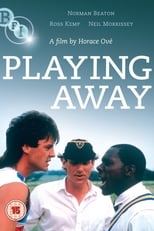
Title: Playing Away
Character: Willie Boy
Released: January 2, 1987
Type: Movie
To mark the conclusion of their "Third World Week" celebration, a cricket team in a small English village invites a black cricket team from South London to a charity game with comical results.


Title: Mark of the Hand
Character: Narrator
Released: January 1, 1987
Type: Movie
Guyanese painter Aubrey Williams (1926-1990) returns to his homeland on a “journey to the source of his inspiration” in this vivid Arts Council documentary, filmed towards the end of his life. The title comes from the indigenous Arawak word ‘timehri’ - the mark of the hand of man - which Williams equates to art itself. Timehri was also then the name of the international airport at Georgetown, Guyana's capital, where Williams stops off to restore an earlier mural. The film offers a rare insight into life beyond Georgetown, what Williams calls “the real Guyana.” Before moving to England in 1952 he had been sent to work on a sugar plantation in the jungle; this is his first chance to revisit the region and the Warao Indians - formative influences on his work - in four decades. Challenging the ill-treatment of indigenous Guyanese, Williams explored the potential of art to change attitudes. By venturing beyond his British studio, this film puts his work into vibrant context.

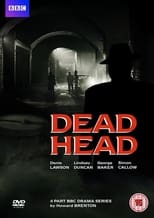
Title: Dead Head
Character: Caractacus
Released: January 15, 1986
Type: TV
London based petty crook, Eddie Cass agrees to pick up a package and courier it across the capital. When nobody answers the door at the drop off address Eddie opens the package and finds a woman’s severed head in a hatbox. He panics and dumps it in the River Thames. Returning home Cass is kidnapped by the mysterious Eldridge and his heavies who inform Eddie that he has been framed for the murder.

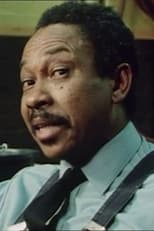
Title: Nice
Released: October 19, 1984
Type: Movie
A naïve and "nice" West Indian's descent into postcolonial cynicism is depicted in a twenty minute monologue from writer Farrukh Dhondy.

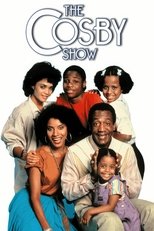
Title: The Cosby Show
Released: September 20, 1984
Type: TV
The Cosby Show is an American television situation comedy starring Bill Cosby, which aired for eight seasons on NBC from September 20, 1984 until April 30, 1992. The show focuses on the Huxtable family, an upper middle-class African-American family living in Brooklyn, New York.

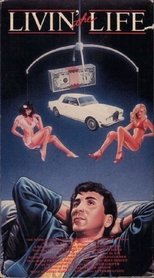
Title: Real Life
Character: Leon McDonald
Released: June 1, 1984
Type: Movie
A comedy about a dreamer whose Walter Mitty-like fantasies turn his world of make-believe into a world of trouble.


Title: Eureka
Character: Byron Judson
Released: May 1, 1983
Type: Movie
An Alaskan gold prospector lives in luxury with his family on an island which gangsters want.


Title: Easy Money
Character: Trevor
Released: May 28, 1982
Type: Movie
At a concert Marcia picked Terry out of the crowd. So he no longer feels alone. Until he learns about her secret life and dare not tell his friends.

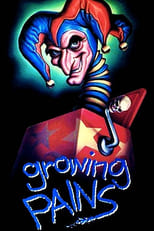
Title: Growing Pains
Character: Ngenko
Released: October 4, 1980
Type: Movie
An old book containing a strange poem resurrects a vengeful spirit from the dead. Originally an episode of British horror anthology TV series, Hammer House of Horror, that later received a feature release in the United States.

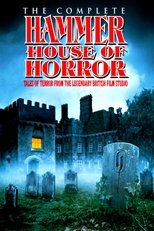
Title: Hammer House of Horror
Character: Mr. Ngenko
Released: September 13, 1980
Type: TV
Anthology series, in which each self-contained episode featured a different kind of horror. These varied from witches, werewolves, ghosts, devil worship and voodoo, but also included non-supernatural horror themes such as cannibalism, confinement and serial killers.

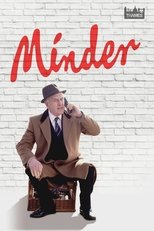
Title: Minder
Character: Billy
Released: October 29, 1979
Type: TV
This comedy drama series featured Terry McCann, a former boxer with a conviction for G.B.H., and Arthur Daley, a second-hand car dealer with an eye for a nice little earner. Alongside his many business ventures, Arthur would regularly hire Terry out as a minder or bodyguard, later replaced by nephew, Ray Daley.

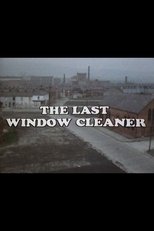
Title: The Last Window Cleaner
Character: Leroy
Released: February 13, 1979
Type: Movie
When DC Denis Deacey finds himself surprisingly transferred to Belfast he gets digs in a most unusual boarding house called The Crumlin View where no one is what they seem and everyone has been living with 'the troubles' for far too long...

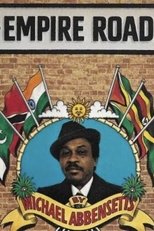
Title: Empire Road
Released: October 31, 1978
Type: TV
Empire Road was a British television series, made by the BBC in 1978 and 1979. Written by Michael Abbensetts, the show ran for two seasons of eight episodes each.
The series was the first British television series to be written, acted and directed predominantly by black artists. A soap opera, similar in format to Coronation Street, Empire Road depicted life for the African-Caribbean, East Indian and South Asian residents of a racially diverse street in the city of Birmingham.
Prominent cast members included Norman Beaton, Corinne Skinner-Carter, Wayne Laryea, Joseph Marcell and Rudolph Walker. The programme also provided early TV exposure for Julie Walters who appeared in a few episodes. The series was made at BBC Pebble Mill with location work in the Handsworth area of Birmingham.
The eponymously named theme song was recorded by Matumbi and also released as a single in 1978.

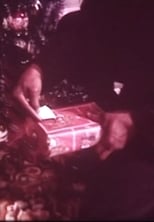
Title: Black Christmas
Character: Bertie
Released: December 20, 1977
Type: Movie
A bittersweet drama on a familiar theme - the frictions forced to the surface during a Christmas family get-together - Michael Abbensetts' Black Christmas is an understated and affecting study of relationships, unexpressed pain and a tormented nostalgia for a distant home.

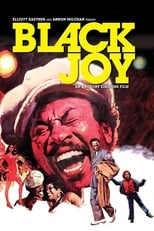
Title: Black Joy
Character: Dave King
Released: November 6, 1977
Type: Movie
An innocent and unsophisticated Guyanese immigrant is exposed to the hustlin' way of life in the Brixton ghetto.

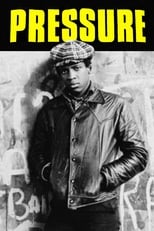
Title: Pressure
Character: Preacher
Released: November 19, 1976
Type: Movie
A British-born younger son of an immigrant family from Trinidad finds himself adrift between two cultures.


Title: In Sickness and in Health
Character: Mr Byron
Released: May 21, 1975
Type: Movie
A hard-working doctor must also carry the burden of a turbulent home life, due to the expectations of his demanding wife. Part of Thames Televison's Armchair Cinema.

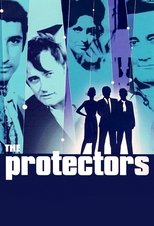
Title: The Protectors
Character: Chauffeur
Released: September 29, 1972
Type: TV
The Protectors is a British television series, an action thriller created by Gerry Anderson. It was Anderson's second TV series using live actors as opposed to electronic marionettes, and also his second to be firmly set in contemporary times. It was also the only Gerry Anderson produced television series that was not of the fantasy or science fiction genres. It was produced by Lew Grade's ITC Entertainment production company. Despite not featuring marionettes or any real science fiction elements, The Protectors became one of Anderson's most popular productions, easily winning a renewal for a second season. A third season was in the planning stages when the show's major sponsor pulled out, forcing its cancellation.
The Protectors first aired in 1972 and 1973, and ran to 52 episodes over two series, each 25 minutes long - making it one of the last series of this type to be produced in a half-hour format. It starred Robert Vaughn as Harry Rule, Nyree Dawn Porter as the Contessa Caroline di Contini, and Tony Anholt as Paul Buchet. Episodes often featured prominent guest actors.

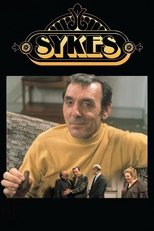
Title: Sykes
Released: September 14, 1972
Type: TV
Sykes is a British sitcom that aired on BBC 1 from 1972 to 1979. Starring Eric Sykes and Hattie Jacques, it was written by Sykes, who had previously starred with Jacques in Sykes and A... and Sykes and a Big, Big Show. Forty-three of the 1970s colour episodes were remakes of scripts for the 1960s black and white series, such as "Bus" based on 'Sykes and a Following' from 1964 and the episode "Stranger" with guest star Peter Sellers based on 'Sykes and a Stranger' from 1961.
Sykes had the same premise as Sykes and A... with Sykes, Jacques, Richard Wattis and Deryck Guyler reprising their former identical roles. The series was brought to an end by the death of Hattie Jacques of a heart attack on 6 October 1980.


Title: Up the Chastity Belt
Character: Blacksmith
Released: January 14, 1972
Type: Movie
A funny thing happened to Lurkalot, serf to Sir Coward de Custard, on the way to Custard Castle. Lurkalot sells lusty love potions and rusty chastity belts in the market place, but on this day Sir Graggart de Bombast arrives to sack the castle, and to get the lovely Lobelia Custard in the sack! Lurkalot must help Custard cream the knight in pining armour...


Title: Barlow
Released: September 15, 1971
Type: TV
Barlow at Large is a British television programme broadcast in the 1970s, starring Stratford Johns in the title role.
Johns had previously played Barlow in the Z-Cars, Softly, Softly and Softly, Softly: Taskforce series on BBC television during the 1960s and early 1970s. Barlow at Large began as a three-part self-contained spin-off from Softly, Softly: Taskforce in 1971 with Barlow co-opted by the home office to investigate police corruption in Wales. Johns left Softly, Softly for good in 1972, but returned for a further series of Barlow at Large in the following year, Barlow having gone on full-time secondment to the Home Office. This second series, rather than telling one story in serial form, as the 1971 series had, was instead ten 50-minute episodes, each with a self-contained story. In this series, Barlow was supported by Norman Comer as Detective Sergeant Rees, who had been helpful to him during the first series. He also had to deal with the political machinations of the senior civil servant Fenton.
In 1974 the series was renamed Barlow and a further two series of eight episodes each followed, introducing the character of Detective Inspector Tucker, played by Derek Newark. The final episode was transmitted in February 1975. The Barlow character was seen again in the series Second Verdict in which he, along with his former colleague John Watt, looked into unsolved cases and unsafe convictions from history.
